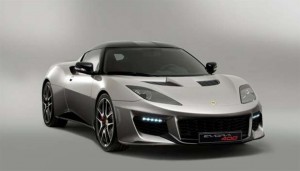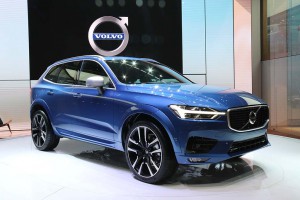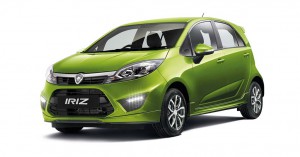China’s ambitious Zhejiang Geely, already the owner of Volvo Cars, is expanding its automotive portfolio with the acquisition of a controlling share of Britain’s Lotus and Malaysia’s Proton.
The announcement forestalls the bidding war some had forecast for Lotus, the specialty car manufacturer that has run into a devastating series of setbacks in recent years. Proton has had its own challenges, its once dominant share of the Malaysian market collapsing due to cheap import competition.
Geely is expected to pump significant capital into its two new subsidiaries, much as it has done for Volvo, which it acquired from Ford Motor Co. in 2012. The Swedish brand has gone through a complete makeover since then, winning kudos for new products and experiencing a sharp upturn in sales after a long slump.
While Lotus has always been a niche brand, it also has faced significant problems in recent years. Early in the decade, it outlined a major product offensive that would have transformed it into a much broader range, higher-volume manufacturer. But the project collapsed and, in 2012, the man who had orchestrated the strategy, CEO Dany Behar, was ousted amidst allegations of financial irregularities.
(Lotus on the block again? Geely’s sniffing around. Click Here for the story.)
The company brought in Jean-Marc Gales in a bid to revive the brand in 2014, and he did manage to get some product programs back in track, but it still lost £27 million last year, with Gales hoping to put it back in the black in 2017.
Helping him achieve that goal, Lotus has finally resolved an airbag problem that saw its cars banned from the critical U.S. market – long the brand’s biggest outlet – in 2015. Lotus unveiled the revamped Evora 400 model at the Geneva Motor Show in March and is now offering it in the States.
It remains to be seen how much broader a product portfolio Lotus will get under the control of Geely, which purchased a 51% stake in the British company from Proton. It has also acquired a 49.9% stake in the Malaysian automaker.
The purchase is a critical development for long-struggling Lotus, said analyst Stephanie Brinley, of IHS Automotive. “It’s pretty much make-or-break” for the British company, she said, adding that, “Without new funding they couldn’t build any new cars.”
(Click Here for details about Lotus and its new approach to growth: practicality.)
Geely is believed to have eyed Lotus for several reasons. Not only does it have an iconic name in the sports car world, but it has a strong reputation as an engineering consultancy, having worked with a range of bigger manufacturers, from Tesla to General Motors. That expertise could help Geely in a variety of areas, including its ongoing effort to turn Volvo into a global luxury powerhouse.
“The agreement lays the foundation for a wider framework for both Geely Holding, Proton and Lotus to explore joint synergies in areas such as research and development, manufacturing and market presence,” said a Geely a news release.
Then there are the namesake Geely and Link & Co. brands, the latter recently launched to target mid-priced segments and expected to come to the United States in the coming years.
What remains to be seen is what Geely might have in mind for Proton. The company was founded in 1983 by Mahathir Mohama, Malaysia’s long-time prime minister. It never gained traction in export markets but was the dominant brand at home, at least initially, in its early years supplying about three-quarters of the vehicles sold in Malaysia. But even as the market grew, Proton lost ground to lower-priced imports, its share tumbling to barely 15%. While the company set a goal of 500,000 vehicles in 2017, production last year came to just 150,000.
(To see more about Geely’s moves with Volvo, Click Here.)
Indonesian officials tried to put a positive spin on the sale of a one-time national jewel, Malaysia’s second finance minister, Johari Abdul Ghani, saying: “Proton will always remain a national car and a source of pride. Our very own much-loved brand now has a real chance in making a comeback.”



